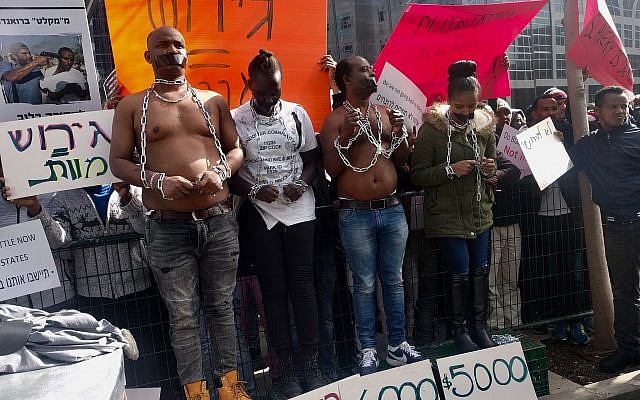African migrants in Israel will no longer face jail or deportation, as the government says it has reached a deal with the United Nations to resettle them in Western countries.
More than 16,000 migrants will be relocated over a five-year period to countries including Canada, Prime Minister Benjamin Netanyahu’s office announced. Only 10 Eritreans and one Sudanese out of over 35,000-40,000 migrants have been recognized as refugees in Israel since 2009, according to the UN. The ‘unprecedented understandings’ will see the remaining migrants integrated into Israeli society, granted legal status, and provided with vocational training and work opportunities.
Israel canceled the plan to deport African migrants “because of legal considerations and political difficulties on behalf of third-party countries,” Haaretz newspaper reported. Those countries were said to be Rwanda and Uganda, even though both governments have denied penning any deal with Israel. Netanyahu’s office also said the current agreement “was approved by the attorney general and is consistent with international law and accepted practice.”
UNHCR, the UN refugee agency, said it will work with receiving countries to “ensure that protection is provided to those who need it.”
The landmark agreement is a sigh of relief for the asylum seekers, the majority of whom escaped war and mandatory conscription in Eritrea and Sudan. In January, Israeli officials announced they would purchase tickets, obtain travel documents, and give each migrant $3,500 to leave—threatening them with arrest if they are caught still in the country after the end of March. That policy decision culminated in the years of violence, harassment, and arrests that Africans have faced in Israel, with state officials calling them ‘infiltrators’, a ‘cancer’ to society, and economic migrants in search of opportunities. The expulsion plan drew protests and criticism from around the world, including from the UN.
In mid-March, Israel’s top court halted the expulsion process, until the state provided more information on its agreements with Uganda and Rwanda to receive the migrants. Authorities, pressed on the deadline to file confidential information, asked the court to postpone proceedings until after the weeklong Jewish Passover festival on April 9.
The sudden turn of events has drawn support from activists and organizations who were agitating against the expulsion.
“This could not have happened without the incredible mobilization of the Israeli and international public who joined us in voicing opposition to the deportation,” a group of organizations including Hotline for Refugees and Migrants and Amnesty International-Israel said in a statement. “We called for just solutions for asylum seekers and for the residents of South Tel Aviv [where many migrants live], and the government heard us loud and clear.”








